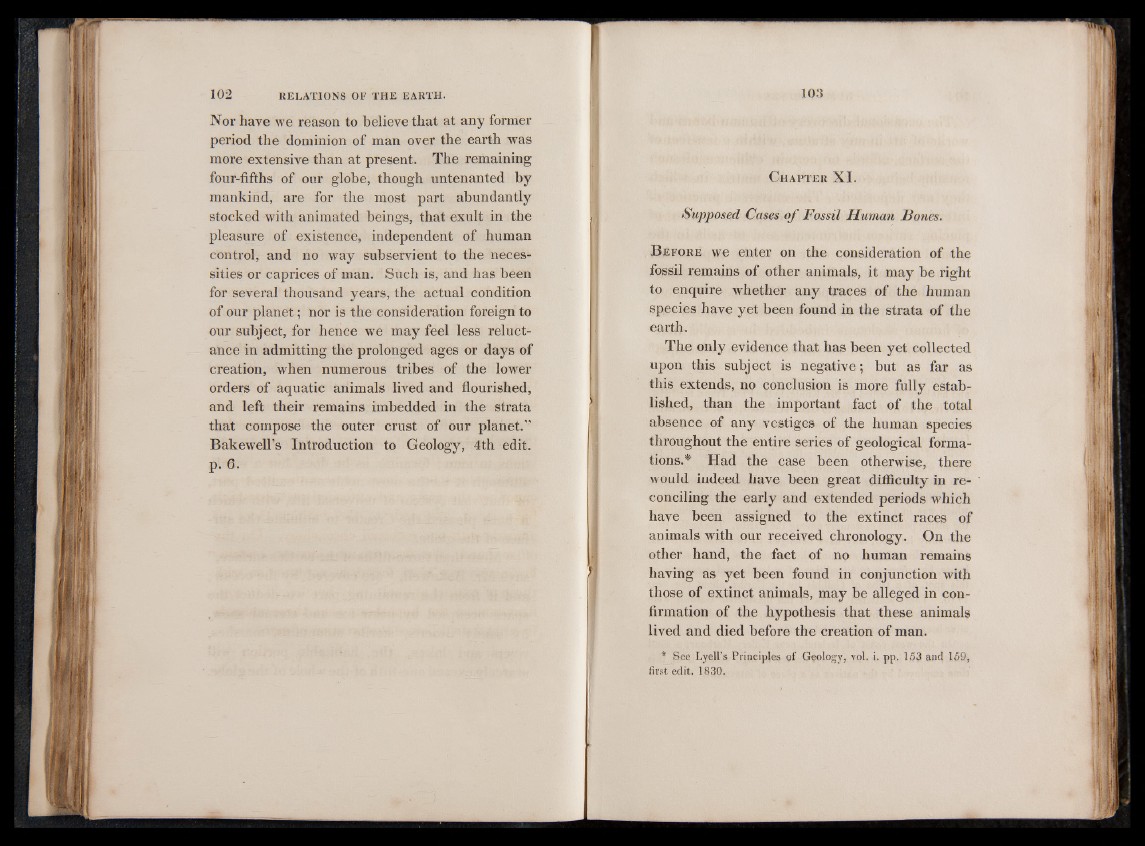
Nor have we reason to believe that at any former
period the dominion of man over the earth was
more extensive than at present. The remaining
four-fifths of our globe, though untenanted by
mankind, are for the most part abundantly
stocked with animated beings, that exult in the
pleasure of existence, independent of human
control, and no way subservient to the necessities
or caprices of man. Such is, and has been
for several thousand years, the actual condition
of our planet; nor is the consideration foreign to
our subject, for hence we may feel less reluctance
in admitting the prolonged ages or days of
creation, when numerous tribes of the lower
orders of aquatic animals lived and flourished,
and left their remains imbedded in the strata
that compose the outer crust of our planet.”
Bakewell’s Introduction to Geology, 4th edit.
p . 6 .
Chapter XI.
Supposed Cases o f Fossil Human Bones.
Before we enter on the consideration of the
fossil remains of other animals, it may be right
to enquire whether any traces of the human
species have yet been found in the strata of the
earth.
The only evidence that has been yet collected
upon this subject is negative; but as far as
this extends, no conclusion is more fully established,
than the important fact of the total
absence of any vestiges of the human species
throughout the entire series of geological formations.*
Had the case been otherwise, there
would indeed have been great difficulty in reconciling
the early and extended periods which
have been assigned to the extinct races of
animals with our received chronology. On the
other hand, the fact of no human remains
having as yet been found in conjunction with
those of extinct animals, may be alleged in confirmation
of the hypothesis that these animals
lived and died before the creation of man.
* See Lyell’s Principles of Geology, vol. i. pp. 153 and 159,
first edit. 1830.